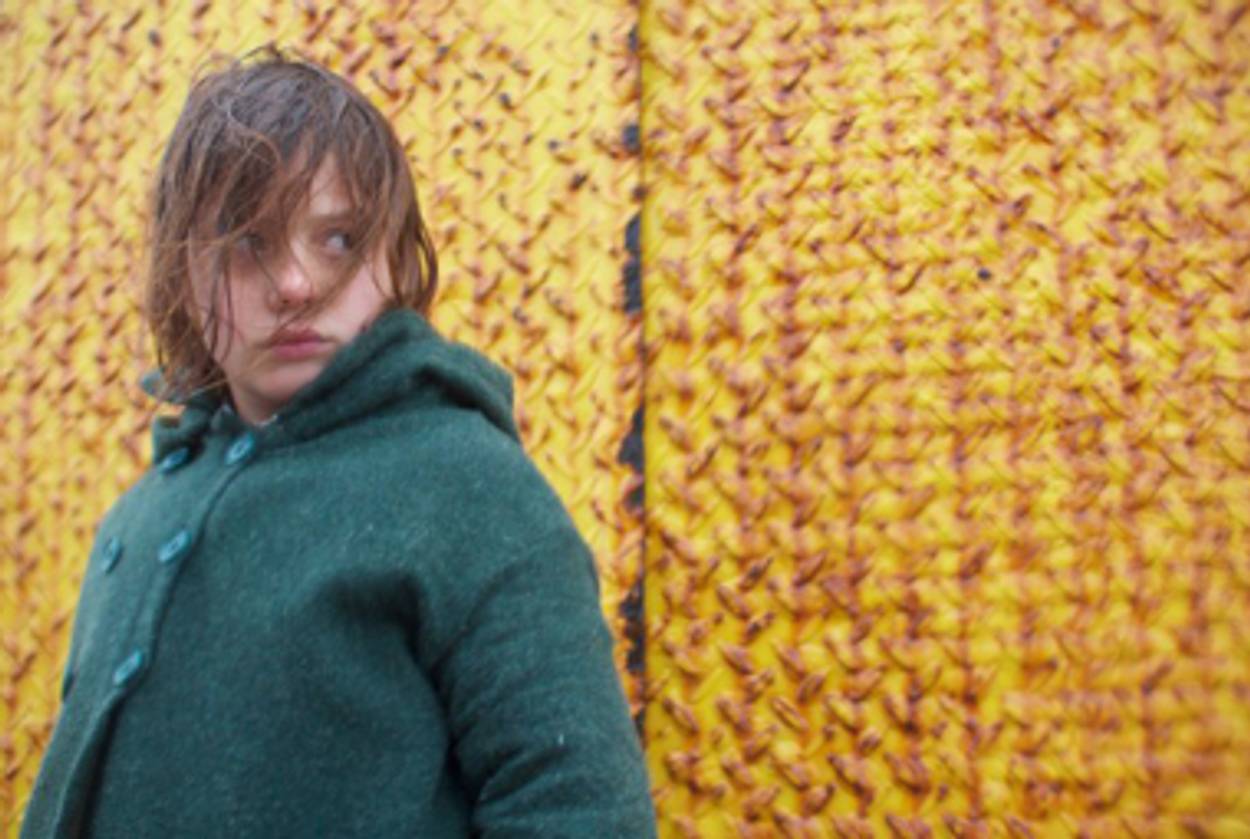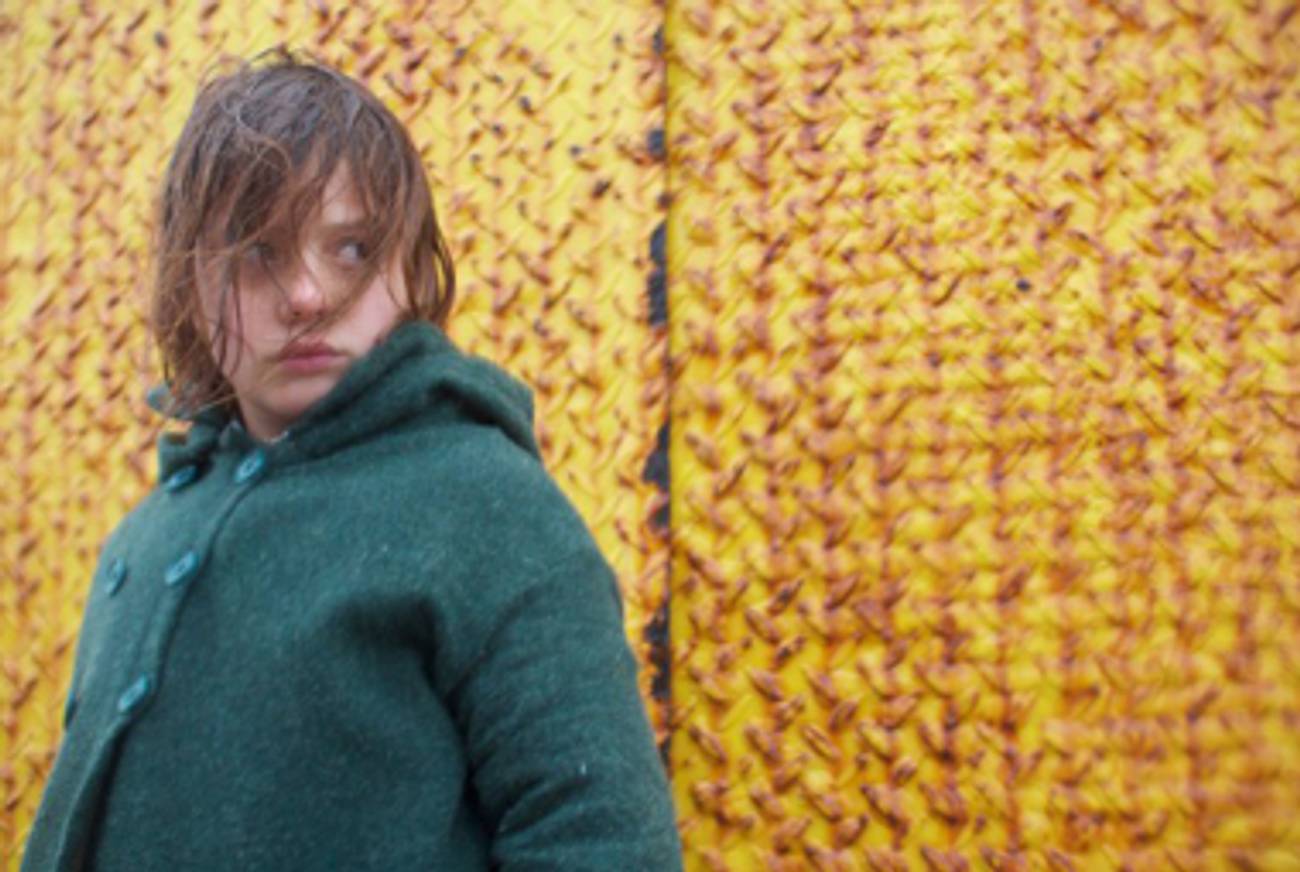Screen Doors
Israel, a nascent cinematic empire, produces great films. But the 28th annual Jerusalem Film Festival, the industry’s most prominent showcase, is still plagued by informality and inattention




What can you say about a country that has 15 film schools and only four medical schools? Does it suggest Israel’s abiding love for cinematic distraction over the concerns of life and limb—or does it suggest something simpler and more reflexive, a preference for proliferation for its own sake, not all that different from the overwhelming variety of yogurts that are available in Israeli supermarkets? Perhaps the smaller the land, the more important the illusion of choice.
And what can you say about a country that has steadfastly refused to learn the rudiments of PR, both for political and cultural purposes? That invites journalists over, expenses paid, for a much-touted cultural event and then pretty much leaves them to their own devices once they arrive? That insists, say, on misspelling my last name as Mirkin rather than Merkin despite many emails over many months attesting to the correct spelling? Is it a form of arrogance or a kind of autism?
And finally, what can you say about a country that doesn’t recognize the uses of formality, that overlooks all semblance of hierarchy in the name of “protectzia,” or favoritism. You know someone who knows someone who knows someone, and therefore you are entitled to be first in line—or, as is more likely, to push yourself to the front of the line. Rules are there to be fudged, schedules exist to be superseded.
Quel balagan: What a mess. And yet it’s our balagan, inspiring equal amounts affection and irritation. Sure, it would be nice if someone would think to put on a tie once in a while at an award ceremony, or if people would quietly take their seats when a screening is about to begin instead of clogging up the entryway, chatting as if they were in a cafeteria. It would be nice, but it wouldn’t be Israel, land of milk and honey and high-tech start-ups and generous government funding for movie-making. During the last year alone, according to the annual catalog of Israeli films, the country produced 89 feature films and documentaries.
I’ve been thinking about Israel and movies because I’ve just returned from being a judge at the 28th Jerusalem Film Festival. The festival, which took place at the Cinematheque, ran for nine days, from July 7 to 16. I was asked to serve on a jury that gave In the Freedom of Spirit Awards to both a feature film and a documentary; the entries included homegrown products as well as international fare. Attending the festival with me was my friend, the critic Richard Schickel, who had never been to Israel before.
Although I’ve never been to Cannes—the only film festival I’d attended prior to this one was a documentary festival in Newport—I feel confident in saying that the Jerusalem Film Festival is nothing like Cannes: no red carpet, no glamorous stars, no five-star accommodations, no daily allotments of spending money. The slightly cut-rate approach began with the flights to Israel, which were economy. I intervened with the authorities on behalf of Richard, who is 78 and was flying from Los Angeles, and succeeded in getting them to bend and fly him business-class. I had no such luck when it came to my own ticket.
These might sound petty to mention—much less point out—but it’s precisely these details that set the tone for an event like a film festival. After all, Sundance would not be Sundance without the presence of Hollywood magnetism in the snow-capped hamlet of Park City, Utah—such festivals generate prestige with an after-party or two that makes those invited to the soirees feel special.
In Jerusalem, some of our screenings started as early as 8:15 a.m., and others were as late as 10 p.m. On some days I saw three films one on top of the other, and on other days I had a single screening. In between, I went up and down the steps that led to the Cinematheque and somewhere along the way developed dysentery—a disease I thought had gone out with Lawrence of Arabia—which very much weakened my stamina for watching the slew of earnest but uninspired documentaries on tap. I also tried to socialize with the Israelis attending the festival, but, alas, they were a particularly inbred group—provincial in their sophistication and disinclined to take an interest in the strangers in their midst.
It is misleading, however, to suggest that the films I saw lacked the artistic credibility of those premiered at more established festivals, simply because of the organizational mishaps I encountered. In fact, I found it all the more insightful into the Israeli psyche that a festival with barely any pomp and circumstance still managed to screen a plethora of excellent films. It was a festival for film fanatics who truly appreciate quality cinema and care little about the perks and happenings outside the low-lit theaters. Which might also explain why my two fellow judges were friendly and interesting to talk to (about movies as well as the Israeli-Palestinian conflict and life in New York). One of them, Yael Perlov, is an editor and producer of feature and documentary films who teaches film editing at Tel Aviv University. The other, Gidi Orsher, is the film critic for Israel Army radio and a lecturer in film. Yael and I tended to see eye-to-eye on most of the selections, while Gidi brought a different, slightly more jaded angle to our viewings.
The movies we saw were a mixture of Israeli and European entries. Some of the American and Canadian offerings included Errol Morris’ Tabloid, which tells the story of one Joyce McKinney, a 1970s beauty queen with a genius IQ who became obsessed with an overweight Mormon; Joseph Dorman’s documentary about Sholom Aleichem, Laughing in the Darkness; and Beginners, with Christopher Plummer and Ewan McGregor. There were several films I wished I could have seen but didn’t manage to get to, such as The Redemption of General Butt Naked, Gillian Wearing’s Self Made (Wearing is one of the young British artists who broke onto the art scene in the 1980s alongside Damien Hirst and Tracey Emin), Sebastian Silva’s Old Cats (he made the marvelous The Maid of last year),and a Norwegian film called Happy Happy. The best Israeli movie at the festival was The Flat (HaDirah), a deeply personal and surprisingly impious meditation on family secrets with a Holocaust twist, made by the talented Arnon Goldfinger. There was also a feature film called Policeman (HaShoter), which, while not totally coherent, had enormous energy.
All three of us judges agreed on which entry we thought worthy of the feature award, which was a truly remarkable debut film made by a young Argentinian woman, Paula Markovitch. Called The Prize, it tells the story of a mother and her 7-year old daughter who have fled the Argentinian military junta for a remote coastal region sometime in the 1970s.The film’s power as a political comment works allegorically and sometimes too confusingly; its real strength is as a close-up, a transporting portrait of a mother and daughter at bay, seeking relief in each other’s company. The acting is haunting, and the movie—which moves at a deliberately slow, almost trance-like pace—stayed with me for days.
We awarded the prize for best documentary to A Bitter Taste of Freedom, a lucid investigation of the life and circumstances surrounding the murder of Anna Politkovskaya, the Russian investigative journalist and civil rights activist who was shot dead outside her Moscow home in 2006 at the age of 48. Two other documentaries that caught our attention were The Green Wave, an animated film about the freedom movement that started up in the wake of the Iranian elections of June 2009, and Concrete, a stark portrait of the thoughts and feelings of a group of soldiers who took part in Operation Cast Lead in Gaza in 2009.
Finally, there were three films that I caught that are definitely worth seeing if they should come this way. One is Amnesty, an almost wordless Albanian film about a love affair that springs up during a monthly conjugal visit between a man and a woman arriving to visit their respectively imprisoned spouses; another is The Arbor, a British film by Clio Barnard that follows the lives of the three children of Andrea Dunbar, a young playwright who came from the projects of Bradford and wrote about the drugs, sex, exploitation, and violence that she saw there. Dunbar died in 1990 at the age of 29, and the film takes up the grim circumstances in which her children—particularly her oldest, biracial daughter, Lorraine—grew up. Last but not least is Code Blue, a Dutch film that follows a nurse for terminally ill patients as her life spirals downwards into isolation and violence. It is grim but captivating at its core.
Israeli enthusiasm for movies, including more “arty” movies, is inspiring to see. The screenings were mostly full, and there was a perceptible excitement in the air. “Israel has everything in place to become the next great film culture,” Schickel told me. “They have the money, the ambition, the schools, and the willingness.” Now if only they would learn to take the time to put on a tie, and maybe even spell my name correctly.
Daphne Merkin, a contributing writer at the New York Times Magazine and a contributor to the TLS, The Times Book Review, Bookforum, and Departures, teaches writing at Columbia University. Her latest novel, Twenty-Two Minutes of Unconditional Love, will be out in June, 2020.
Daphne Merkin, a contributing writer at the New York Times Magazine and a contributor to the TLS, The Times Book Review, Bookforum, and Departures, teaches writing at Columbia University. Her latest novel,Twenty-Two Minutes of Unconditional Love, will be out in June, 2020.